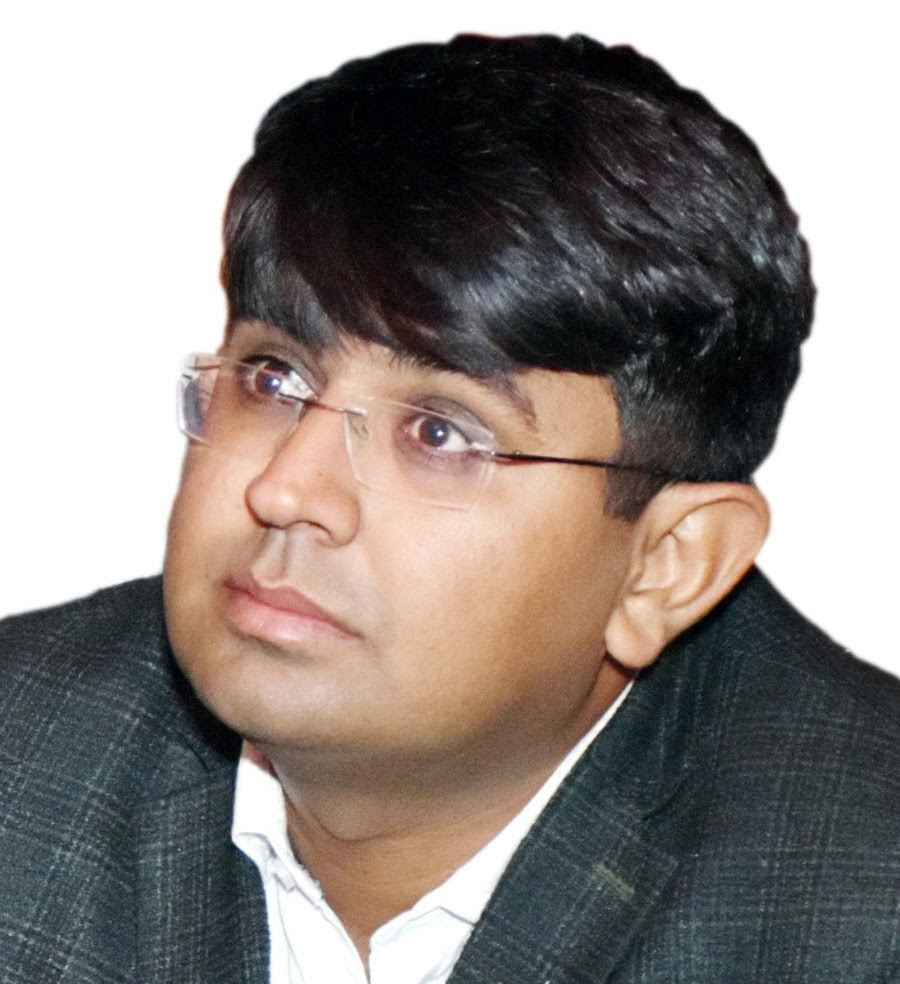A corruption-free nation requires good moral values in the citizens
 Satywan Saurabh
Satywan Saurabh

We are being fooled because we are stupid. Our rights are taken away because we try to take away others. Corruption happens to us because we are dishonest. We need to improve ourselves, people will improve themselves. Mahatma Gandhi said – “Be the change you want to see in the world.”
Prime Minister Narendra Modi hoisted the tricolor for the 9th time from the ramparts of the Red Fort on the occasion of the 75th anniversary of the country’s independence. On this occasion, PM Modi shared his concerns along with his hopes and resolutions in front of the countrymen. In his speech, the PM mentioned the corruption spread in the country. Describing corruption as dangerous for the country, the PM appealed to the younger generation to come forward to end it. PM Modi said that nepotism and familyism (focus on dynasty and family) are not limited to politics only. Will freedom from corruption be the real freedom for the country?
Corruption is the path of resistance. In many ways, corruption is how the less skilled advance in society at the expense of the more skilled. A Transparency International study in 2005 indicated that 62% of Indians had paid bribes to get a job at some point. An assessment of what is corrupt income and what is honest income can also bring forth an alternative mirror economy. And it’s certainly a scary truth to behold. Corruption is the biggest issue that is facing the country today. Not too surprising, it is a major internal threat. Corruption has two sides. The giver aspect and the taker aspect. Each is of course equally guilty. There are more givers and fewer takers. If the givers stop giving, then this whole industry of corruption will come to a standstill.
The public and national action against corruption were led by Anna Hazare. But what came out of it was a meek act without any real power in the form of Lokpal. The government system in India is low-paid. But their discretionary powers lead to corruption even at the lowest level. E-governance should bring more transparency and accountability and curb corruption. If honest action is taken against corruption then the nation will surely benefit in more ways than one. The nation and many institutions that look after the well-being of the people will benefit immensely. After all these 75 years of independence, it is time to ring the bell to the cat of corruption. We need to hit the root of it. Its root lies in the giver more than in the taker.
A corruption-free nation requires good moral values in the citizens. The children of today are the citizens of tomorrow and the values imbibed in a child during his formative years play a vital role in the overall progress of the nation. In this regard father, mother and teacher are important in shaping the influential mind by inculcating the right values. Inculcating a sense of honesty, empathy, truthfulness, and compassion towards fellow living beings can only be done effectively by the parents. All of this requires that the parent provides emotional security and meets the child’s physical needs. A large part of the time is spent by the child watching his parents. So parents should not only preach but also set an example using the above values.
Parents also build the creative mind of children when they tell moral-based stories. Parents can also do the work of introducing children to good literature and films. Like the stories of Harishchandra which portray “honesty”. Father is always the first role model for the child. Children learn by following their fathers. It gets absorbed into their mind over time and becomes a part of their character. Mother is often referred to as the first teacher and guide for the child. She teaches him emotional intelligence, empathy, and compassion. It is often the mother who guides our perception of right and wrong. It gets absorbed into us at an early stage and becomes a part of our conscience. Mother influences our religious beliefs and cleanliness habits.
Teachers play a vital role in awakening the curiosity in the child, fostering his/her creative potential, and bringing out latent talents and passions. Teachers also play an important role in imbibing discipline and regulating the child’s interpersonal interactions with peers. Given the fact that children spend almost half of their childhood in school, the role of the teacher is of paramount importance. Other factors like media, peers, and friends, siblings also play an important role in shaping a person. But mainly it is the trio of teacher, mother, and father. India ranks at the bottom of the “Corruption Perceptions Index” prepared by global watchdog Transparency International. It has not only stopped the economy from reaching new heights, but rampant corruption has stunted the country’s development. Lack of political will, Criminalization of politics, complex tax, and licensing systems, opaque bureaucracy and multiple government departments with discretionary powers, PDS, and lack of transparent laws and procedures add to the crisis. Low wages, poverty, and indebtedness to bureaucrats give rise to corruption as they need education They are forced to pay bribes to get basic services like health, food supply, etc.
Value education in India has failed miserably to inculcate the value of empathy, compassion, integrity, equality, etc. in the younger generation. The lifestyle changes induced by globalization have further eroded the moral fabric of society. The low level of education in underdeveloped countries places citizens in a state of ignorance of their rights, preventing them from participating in political life. Poor and marginalized people become easy targets of exploitation by corrupt officials due to a lack of awareness and high dependence on the state. The shift toward individualism and materialism has increased the attraction toward the luxury lifestyle. People are ready to adopt unethical methods without caring about others to earn more money.
Such is the strengthening of the institutional and legislative framework including the Prevention of Corruption Act, an independent Central Vigilance Commission, Comptroller and Auditor General, Judges (Investigation) Act, Lokpal and Lokayuktas Act 2013, Whistle Blower Protection Act 2011, Prevention of Money, Precise, Public It is necessary to have the information available in the form and the implementation of the Right to Information Act in the true sense.

Satywan Saurabh is a Research Scholar, Poet, Independent Journalist, and Columnist,All India Radio and TV Panelist
Advertisements | 5E For Success

Join KRC Career Membership Program
KRC Career Membership Program is the first step toward an evolved career-building support system powered by KRC Foundation. Ideal for students and job seekers. Mail resume to- 5eforsuccess@gmail.com


